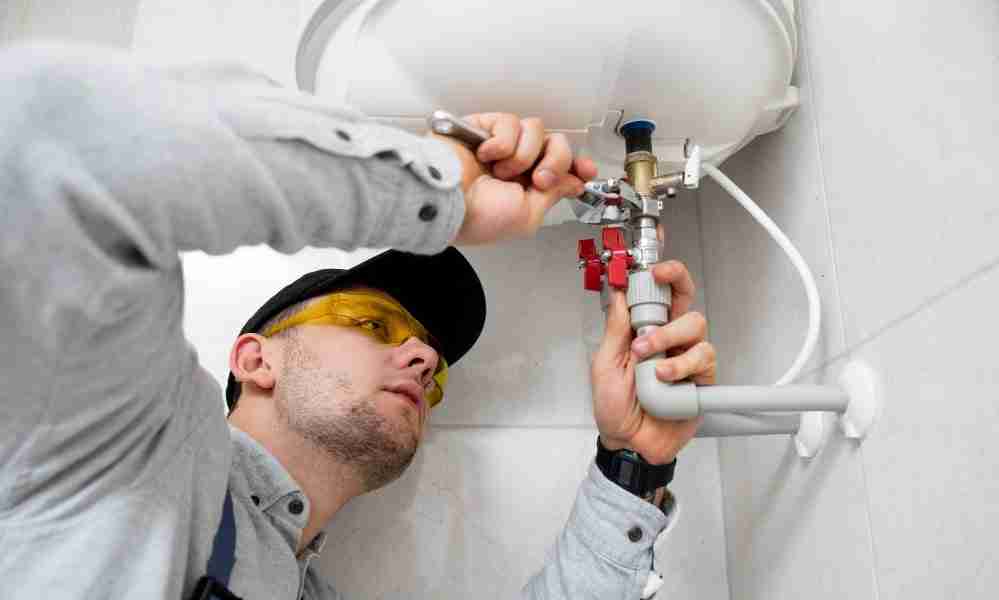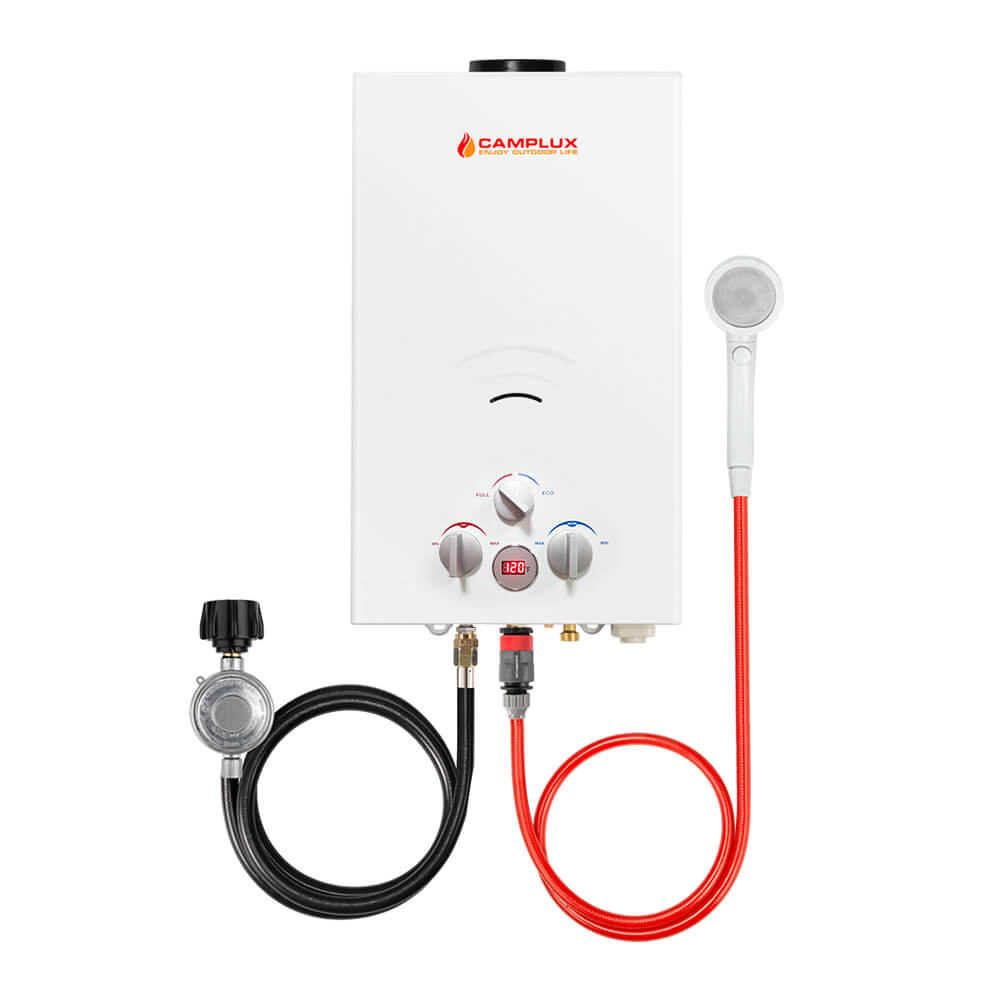Optimizing Household Convenience: The Benefits Of Tankless Water Heaters
Optimizing Household Convenience: The Benefits Of Tankless Water Heaters
Blog Article
What are your thoughts with regards to Pros and Cons of Tankless Water Heater?

In a world where convenience and efficiency reign supreme, it's no surprise that home owners are constantly on the lookout for smarter means to manage their home's energy intake and comfort. One advancement that has progressively gotten appeal is the tankless hot water heater. Yet just what makes these systems attract attention from the traditional tank-based models most of us matured with? Allow's dive in and discover the benefits of tankless hot water heater, helping you decide if it's time to make the button in your house.
Introduction
Image this: you enter the shower after a lengthy day, anticipating a comforting waterfall of warm water, only to be welcomed by icy droplets due to the fact that the last individual utilized everything up. Sound acquainted? Typical water heaters keep a set quantity of hot water, meaning you're at the mercy of that container's supply. Tankless systems, on the other hand, heat water as needed. Say goodbye to going out mid-shower, no more wrestling with schedules simply to guarantee warm water is available.
Understanding Tankless Hot Water Heater
What Are Tankless Water Heaters?
Tankless water heaters, occasionally known as on-demand or instantaneous water heaters, give hot water only as it's required. Instead of storing gallons of pre-heated water, these devices kick into activity the moment you activate the faucet. Water travels through a warmth exchanger, warming up in real-time, indicating you get an uninterrupted flow of hot water without the requirement for a large storage tank resting idly by.
How Do They Vary from Standard Solutions?
Typical heating units hold a tank of warm water, using energy to keep that container at a consistent temperature. Tankless units remove the standing supply, lowering wasted power and the cumbersome footprint of a huge cylinder. Basically, you're upgrading from a "stockpile" attitude to a "made-to-order" strategy.
Common Sorts Of Tankless Devices
Tankless water heaters normally come in 2 varieties: gas and electric. Gas designs often tend to provide greater circulation prices, suitable for bigger homes, while electric versions typically serve smaller homes and are usually simpler to mount. In addition, some systems are made for point-of-use (serving one component) while others can handle the whole home's warm water requirements.
Key Advantages of Tankless Water Heaters
1. Endless Hot Water Supply
Ever needed to arrange showers so every person gets their fair share of hot water? With tankless, that ends up being a distant memory. As long as the heating unit's flow capability isn't gone beyond, you can take back-to-back showers without developing into a popsicle.
2. Power Effectiveness and Cost Financial Savings
Say goodbye to heating a titan tank's worth of water and maintaining it warm all the time. Tankless heating units lower standby energy losses, which can decrease utility bills. While the first cost could be greater, the long-lasting savings often justify the investment.
3. Space-Saving Style
If your home is short on storage, eliminating the cumbersome tank liberates useful space. Tankless systems are compact and can typically be mounted on walls, stashed in corners, or set up in tight utility storage rooms without grabbing all of the whole room.
4. Longer Life expectancy
A well-kept tankless hot water heater can outlive its tank-based cousin. Standard tanks might last 10-15 years, while tankless designs can keep chugging along for 20 years or more, making them a strong financial investment in time.
5. Improved Water Top Quality
Keeping water in a storage tank can occasionally bring about debris accumulation or a slightly "off" preference. With tankless systems, fresh water is heated up instantly, reducing the opportunities of sediment buildup and possibly supplying cleaner-tasting water.
Factors to consider Prior To Changing
Though the advantages are compelling, it's important to take into consideration a few aspects prior to totally dedicating.
Initial Financial Investment Costs
Tankless heating units usually come with a higher upfront price tag. Between the unit itself and potential installment modifications, the preliminary price might provide you sticker label shock. Yet remember to see it as a lasting financial investment.
Installment Demands
Depending upon your home's infrastructure, you may need added electrical ability or gas line upgrades. Ensure you recognize the installation demands and consult with an expert to prevent surprises.
Reviewing Your Home's Water Use Patterns
If your family simultaneously utilizes several fixtures with high warm water need, see to it the device's flow price fulfills your needs. Understanding your use patterns aids you select the right size and type of tankless heating system.
Upkeep and Treatment Tips
Tankless systems are reasonably reduced upkeep, yet they aren't set-it-and-forget-it home appliances.
Regular Cleansing and Descaling
Difficult water minerals can build up in the warmth exchanger, influencing effectiveness. Regular descaling (typically recommended every year) keeps the system running at peak performance.
Yearly Professional Inspections
A yearly checkup from a specialist makes certain minor problems are caught early. They'll examine the system's performance, seek leakages, and aid maintain optimal effectiveness.
Making Sure Correct Ventilation
For gas models, appropriate air flow is necessary to safely get rid of exhaust gases. See to it venting systems are clean and correctly installed to prevent any type of prospective security dangers.
Comparing Different Brands and Versions
Not all tankless hot water heater are developed equal.
Looking Into Dependable Producers
Try to find trustworthy brands with a history of producing top quality systems. A dependable manufacturer often supplies far better client assistance and longer warranties.
Reviewing Reviews and User Feedback
Customer reviews and feedback from next-door neighbors or friends that have gone tankless can offer beneficial insights. Occasionally, real-life experiences can be much more telling than marketing pamphlets.
Setup: Do It Yourself or Specialist?
While some homeowners delight in tackling projects themselves, tankless setup might not be the very best time to burst out the toolbox.
Pros and Cons of DIY Setup
A do it yourself install can save cash, yet it comes with dangers. Incorrect installation can result in inadequacy or security issues. If you come in handy and have experience, it could be viable-- yet proceed with care.
When to Call a Professional Plumbing
For a lot of, calling a pro ensures every little thing's done appropriately. A specialist plumber recognizes regional codes, sizing requirements, and venting parameters, decreasing the risk of accidents.
Maximizing Effectiveness
You have actually bought a tankless system-- now optimize its performance.
Optimal Temperature Settings
Most people establish their devices between 120-140 F. Readjusting the temperature can boost convenience and financial savings. Experiment to locate a pleasant place that doesn't waste power.
Coupling With Low-Flow Fixtures
Want to stretch your device's abilities? Think about installing low-flow showerheads and taps. They minimize water usage, allowing your tankless system to deliver a consistent stream of hot water without straining.
Environmental Impact
Tankless hot water heater line up with greener living objectives.
Decreased Carbon Footprint
By utilizing much less power and just heating water as required, tankless systems can lower your home's carbon impact, minimizing your environmental impact.
Conserving Natural Resources
Much less energy consumption and less wasted hot water convert into fewer natural deposits being made use of, an ecological win-win.
That Profits The Majority Of from Tankless Heating systems?
The elegance of tankless heaters is that they can match a selection of houses.
Huge Family Members vs. Single Owners
Large households may enjoy the limitless hot water supply, while single occupants appreciate the power cost savings from not heating a whole storage tank for just a single person's morning shower.
Home Owners with Restricted Room
If your home is short on square video footage, losing the large tank frees up room for various other essentials-- or possibly just extra breathing space.
Eco-Conscious Customers
Going tankless aligns with eco-friendly values, ensuring you're not losing power or resources.
Future Patterns in Tankless Water Heaters
The globe of home devices is ever-evolving, and tankless water heaters are no exception.
Smart Home Assimilation
Visualize changing your hot water heater's temperature through an app or obtaining maintenance alerts on your phone. As smart home technology breakthroughs, we'll see even more connection and comfort.
Innovations in Technology
R&D is continuously boosting heat exchangers, making systems a lot more reliable and sturdy. Future designs might be also quieter, extra small, and far better suited for differing climates.
Conclusion
Selecting a tankless water heater is greater than simply upgrading your home's hot water system; it's purchasing long-lasting comfort, energy efficiency, and a greener way of living. By considering your home's water use, bearing in mind installation requirements, and devoting to routine maintenance, you can take pleasure in a steady stream of hot water without the baggage of a bulky storage tank. As technology progresses, you can expect also smarter, much more reliable tankless services that not only make your life easier yet additionally profit the world.
Why You Should Consider a Tankless Water Heater for Your Home
Energy Efficiency and Cost Savings
Tankless water heaters, also known as on-demand water heaters, heat water only when needed. This means they don't waste energy keeping a tank of water hot constantly. This efficiency translates into substantial cost savings on your monthly energy bills.
Endless Hot Water Supply
One of the significant advantages of tankless water heaters is their ability to provide a continuous supply of hot water. Traditional tank water heaters have a limited capacity and can run out of hot water, especially during peak usage times. In contrast, tankless water heaters can provide an endless stream of hot water, making them ideal for larger families or homes with high water usage.
Space-Saving Design
Tankless water heaters are compact and take up significantly less space compared to traditional tank heaters. They can be installed on walls, under cabinets, or even outside, freeing up valuable space in your home. This makes tankless water heaters a great option for smaller homes or properties with limited space for a traditional water heater.
Longer Lifespan and Lower Maintenance
Tankless water heaters typically have a longer lifespan compared to traditional tank heaters. They can last up to 20 years or more with proper maintenance. Additionally, tankless systems are designed with replaceable parts, which can extend their lifespan further and reduce long-term maintenance costs.
Environmentally Friendly
Reducing energy consumption not only saves you money but also benefits the environment. Tankless water heaters contribute to a smaller carbon footprint by using less energy to heat water. Their energy efficiency and ability to minimize standby heat loss make them an eco-friendly choice for environmentally conscious homeowners.
Customized Temperature Control
Tankless water heaters offer precise temperature control, allowing you to set the desired temperature to meet your specific needs. This level of customization ensures you always have water at the perfect temperature for your comfort and usage requirements.
https://beantownservices.com/blog/consider-tankless-water-heater-for-your-home

As an enthusiastic person who reads about Unveiling the Hot Trend: The Benefits of Tankless Water, I was thinking sharing that piece of content was worthwhile. If you enjoyed reading our post plz be sure to pass it around. Thank-you for going through it.
Click Here Report this page